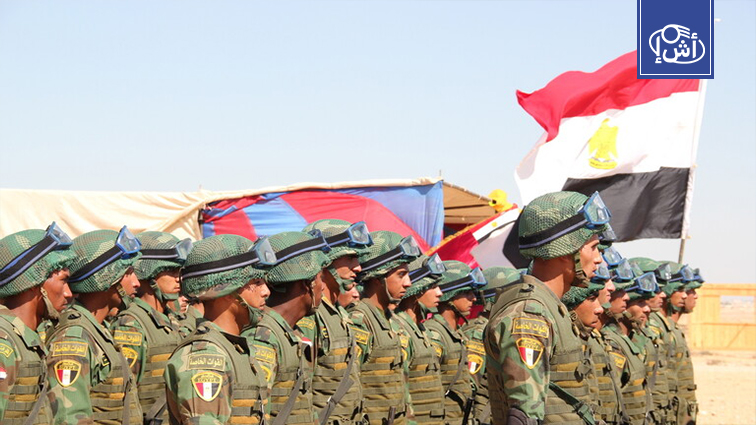Israeli media claimed that Egypt intends to wage war against Israel, and that it has built a huge military infrastructure in Sinai in preparation for this war.
Israeli researcher Eli Clotstein from the “Mishgav” Institute for National Security and Zionist Strategy stated, in a report published by the “Makorrishon” website, that the recent developments in Sinai raise concern, even though there is no direct threat from Egypt at the present time.
Clotstein explained that the disengagement process from the Gaza Strip in 2005 was a turning point, as Israel allowed Egypt to deploy security forces in Sinai for the first time since the 1979 peace agreement.
Clotstein said: “The annex to the agreement was drafted according to the principle of sparing the Sinai Peninsula, as a guarantee that allows the two countries to live in peace side by side, without fear of Cairo using the lands transferred to it after the peace agreement as part of the agreement for war against Israel, and this principle has been preserved for decades.” For some time, until Israel decided in 2005 to also withdraw from the border area with Egypt in the Gaza Strip, known as the Philadelphia axis, and since Israel was aware at that time of the extent of smuggling taking place in this area between Gaza and Sinai, it reached an agreement. Separate with Egypt, under which it was allowed to deploy about 750 Egyptian policemen in Sinai, in the Egyptian Rafah region, with the aim of combating the smuggling of people, weapons and drugs between the two parts of the city, Gaza and Sinai.
He continued: “Cairo did not want or was not able to fight smuggling in this period, and the arming that Hamas began at that time exploded inside Israel eight months ago, but even regardless of that, Israel at that time abandoned the principle of demilitarization.” In fact, it created a precedent within which Egypt began sending armed military forces in large numbers towards the Israeli border in 2005.”
He stressed that “in those days, the then Chairman of the Foreign Affairs and Defense Committee, Member of the Knesset and former Minister Yuval Steinitz, warned that this was a black day for Israel, and described it as a power outage that befell the state.”
Clotstein pointed out that the number of Egyptian forces in Sinai has increased significantly over the years, reaching 88 battalions comprising about 42,000 soldiers at the beginning of 2018.
He explained that according to the peace agreement, Sinai was divided into three parts, and Egypt was allowed to keep 230 tanks, 22,000 soldiers, and 480 armored personnel carriers in Area A, near the Suez Canal, and this was only allowed in other parts of Sinai, closer To Israel to send police forces and border guards from time to time, the number of soldiers has almost doubled, and they are equipped with two hundred additional tanks and other heavy weapons, and they are spread throughout the peninsula.
He continued: “Last month, another development occurred, as Egypt announced the launch of the Sinai Tribes Union, an initiative whose official goal is to combat security threats in the region and support Egyptian President Abdel Fattah El-Sisi. This union is headed by a Sinai businessman named Ibrahim Al-Arjani and has established a new residential city.” It bears the name of President Sisi near the border with the Gaza Strip, and that the truth and main concern that Tel Aviv should have regarding this new tribal union relates to the affairs of Rafah and the Gaza Strip, as the Bedouins operating under this entity can direct the barrels of their rifles towards Israel.
He went on to say: “The matter is not limited to words or military exercises only. As has become clear, Egypt is investing huge sums of money in building strategic infrastructure inside the Sinai Peninsula and in paving roads to reach it as quickly as possible, with the declared aim of increasing the local army’s ability to transport… Large quantities of heavy forces were sent to Sinai in a short time to confront terrorism, but according to estimates, it is possible that even within a few hours from the moment the order was issued, large Egyptian military forces will be able to reach the heart of the Sinai Peninsula and from there to Israel.
He added: “We must consider the possible inputs that can be allocated to the Egyptian threat and deal with it. This does not mean that we see Cairo as a source of threat to us, but at the same time we should not bury our heads in the sand, and we must prepare for any eventuality that may not happen, and certainly After October 7.”
Egypt prepares to open “New Rafah City” on the border with Gaza
